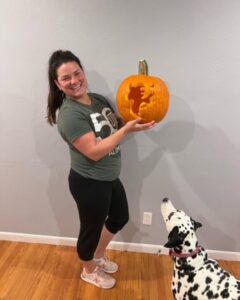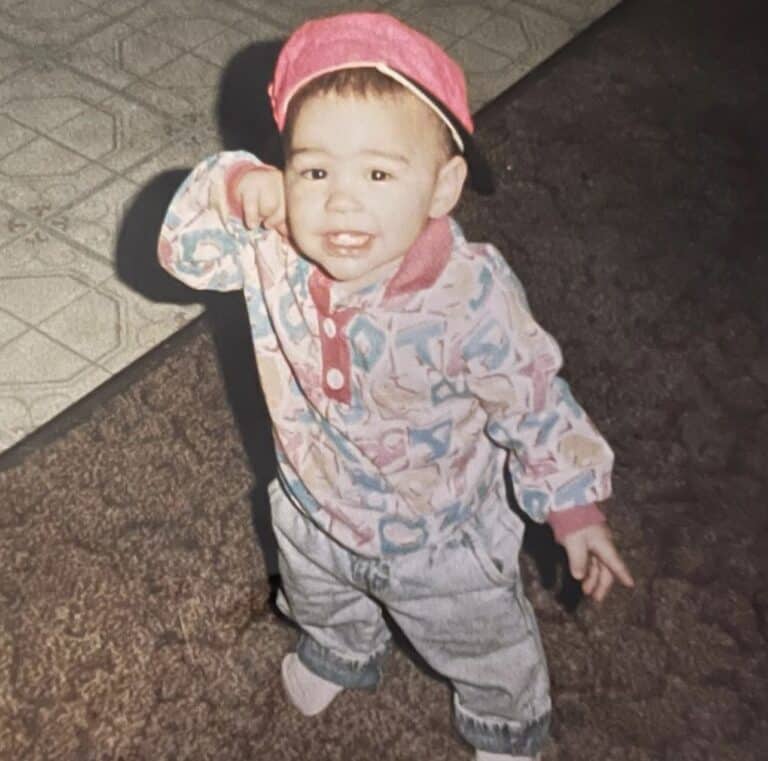So what’s the ‘it’ that takes discipline? Well, there are lots of things, but for this post, the ‘it’ refers to an eating disorder. It’s come to my attention that many people don’t understand eating disorders or what they might look like. So I will inform you about this illness (yes, it’s an illness) and then take you on my eating disorder journey.
Before we get started, take some time to review my privacy policy and disclosures. Remember that this post is written from my perspective and everyone’s experience is unique.
Types of Eating Disorders
You’ve likely heard phrases like “she’s anorexic” or “she’s bulimic” tossed around casually in gossip, but do you know what they actually mean? There are three common eating disorders: anorexia nervosa, bulimia nervosa, and binge-eating. Other less common conditions include rumination disorder, avoidance/restrictive food intake disorder, and orthorexia (which isn’t an official disorder yet).
You can learn about each disorder/condition by clicking the linked words above. FYI, all the links except orthorexia go to the same place. I feel it’s essential that you take time to understand the difference between each. I know learning is boring. Blah, blah, blah. We’re getting to the tea.
Wait, Sam had an Eating Disorder?
Yes, I had an eating disorder, and it was a well-kept secret. I started obsessing over my body after a failed suicide attempt at 15 years old. (Sorry if I just dropped a bombshell on anyone.) By 17, I ran a minimum of one mile every day, had a highly structured seven-day-per-week strength training plan, was overly calorie-conscious, and used diet pills that made me poop multiple times a day. Puking was short-lived because I had nice teeth after I got my braces off. I didn’t want to ruin them. I also didn’t want anyone to smell the puke on my breath and learn my secret.
I lost quite a lot of weight between my junior and senior years of high school; it was noticeable, and people asked me how I did it. My response? I stopped eating fast food, cut soda, and worked out occasionally. I knew the truth would trigger someone to tell my mom, so I didn’t tell the truth. Part of the truth was that I did this because I didn’t want to be like my mom, who binged frequently and was morbidly obese due to the binging. I’ve spent my entire life avoiding any topic that would hurt my mom’s feelings, so there are lots of things she never knew about. My stepdad knew something was wrong, and he told my mom; when she confronted me, I told her he was making it up. End of conversation.
By the age of 19, My Fitness Pal was a website I frequented, and I took notice of calories even more. I had a strict 1200-calorie-per-day diet that did not include carbs, still took diet pills, and worked out seven days per week in addition to my retail job that required walking and lifting heavy objects for 4-6 hours 5 days a week. My workouts were always more than an hour long and very cardio-heavy. When I married at 20, I was between a size 2 and 4 and noticeably too thin for my frame. I was complimented frequently; my sister is the only person who ever uttered the words, “you’re too skinny,” and I brushed it off as jealousy.
The amount of discipline that went into maintaining my anorexia was through the roof. But I had undiagnosed OCD, general anxiety, and panic disorder; discipline was my middle name. It’s how I functioned. It’s how I accomplished everything, whether good or bad.
Enter Binge-Eating
By my junior year of college, I was losing my mind. Food was the only thing I felt I could control. Unfortunately, I was a full-time college student, worked full-time hours, and had to navigate marriage. So I began binging and could no longer keep up the discipline it took to restrict and purge because of my hectic schedule. I tried keeping my diet relatively low calorie to the best of my ability but would binge at least once a week. Like binge to the point of being sick, but I continued eating anyway. I gained weight and hated myself more than ever before. My body size defined me during that time, or so I thought, so all of this royally mind-fucked me.
For a few years after my bachelor’s degree, I went back and forth between anorexia and binge eating, and my weight was volatile. I became bulimic at 29 and continued that for almost two years, which coincided with cancer treatment. I refer to this stage of my life as extremely mind-fucked. I got into appropriate-for-me therapy when I was 31 and started my journey to recovery.
Stereotypes and Consequences
A common question I get when I tell someone I had an eating disorder is how did I hide it so well. There were times when I was far too thin, but I managed to maintain some muscle tone during those times, so it wasn’t blatantly obvious. The stereotype surrounding eating disorders is that people with them are sickly in appearance; you can see their bones. That is true for some people, but not everyone falls into that stereotype. I hid it because I never fit that description. When I gained weight from frequent binging, I’d blame it on something external and then reenter anorexia to lose the weight. People are quick to point out when you put on a few pounds but quieter when the opposite occurs. Discovering bulimia was almost like taking ecstasy; I could binge and stay skinny. Mind-blowing! It gave me intense endorphins and the feeling that I had solved all my food-related problems. It sounds absolutely absurd, but that’s where I was mentally.
The consequences of eating disorders outweigh the “benefit” of being thin. I was nutritionally deficient, had frequent running injuries, was sick often, and struggled with sleep. My metabolism is absolute trash, and my appetite isn’t normal. The eating disorder also delayed my Polycystic Ovarian Syndrome (PCOS) diagnosis. I inquired about PCOS a couple of times but was told I didn’t have it. My bloodwork was skewed because of my eating patterns, my weight appeared “healthy,” and I didn’t have periods at all, so things didn’t add up for the doctors to pursue a PCOS diagnosis.
After more than a year of intuitive eating practices, taking control of my health, and several PET scans and CTs where ovarian cysts could be seen (thanks, cancer), my gynecologist diagnosed me with PCOs a few weeks ago. It’s a life-changing diagnosis but relieving to know I’m not insane in thinking that’s been a problem since puberty. I don’t know that a PCOS diagnosis would have ever changed anything, but it’s dreadful not understanding why your body doesn’t work the way it’s supposed to.
Let’s Wrap this Bitch Up
The point of this entire post was to describe what an eating disorder is and that it doesn’t physically look the same for every person. It takes an incredibly disciplined person to maintain an eating disorder; I did it for 14 years and wouldn’t have an issue (discipline-wise) doing it again. It would be pretty easy because I tend to skip meals until I’m absolutely ravenous. It’s not intentional; I’m just not hungry because I fucked up my appetite with more than a decade of eating disorders. However, I’m making progress. I set reminders to eat and am giving my body grace as it adjusts to a more healthy eating pattern. I’m still in therapy and working with a dietician who holds me accountable.
If you resonate with any of the things I described in my story or if any of the eating disorder definitions apply to you, I urge you to seek help from a registered dietician (RD) who emphasizes body image in their program. Unfortunately, you likely won’t find this person by searching for providers covered by your insurance. It sucks, but that’s the reality of things. (If you do, then say a great big fucking AMEN!) Think about the time and money you put into diets, though? If you’re already spending money on diet culture, switch gears and put those funds toward an RD. If you don’t have the funds for help, use the resources available through the National Eating Disorders Association.
For those who don’t have this problem, let your loved ones know that it’s okay to talk to you about their eating disorder. Guilt is not how you convince them this is a problem. Instead, speak to them so they’ll understand, and you need to understand that no one gets help unless they’re ready to take that step.
Because I feel like I dog on my mom often in these posts, I want to make it clear, again, that I love my mother. I love her with all my heart and know she did her best with what she had (see I Get it From Her). I personally take responsibility for unhealthy habits I continued into adulthood. I knew they were unhealthy; hence I hid them for a long time. I’m unlearning those behaviors now, though, and will continue to work on holding myself accountable.
Call to Action
Contact me if you need resources, and follow me on Instagram to keep up with this insane life I lead. I’m open with most of my story, so you don’t have to be. If you can watch a real human struggle with these totally common issues and seek help because of it, then putting my life out there for the world to follow is absolutely worth it. Keep in mind that healing doesn’t happen in a straight line.
Do you know what else doesn’t happen in a straight line? My ability to carve a pumpkin using an outline.
Until next time,
Sam


